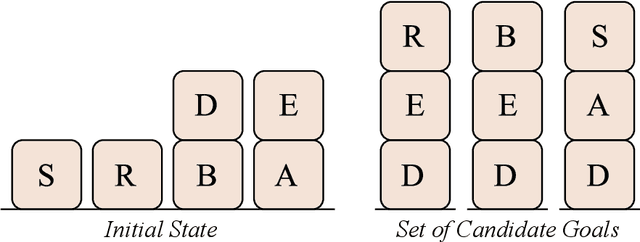Goal Recognition over Imperfect Domain Models
Paper and Code
May 12, 2020



Goal recognition is the problem of recognizing the intended goal of autonomous agents or humans by observing their behavior in an environment. Over the past years, most existing approaches to goal and plan recognition have been ignoring the need to deal with imperfections regarding the domain model that formalizes the environment where autonomous agents behave. In this thesis, we introduce the problem of goal recognition over imperfect domain models, and develop solution approaches that explicitly deal with two distinct types of imperfect domains models: (1) incomplete discrete domain models that have possible, rather than known, preconditions and effects in action descriptions; and (2) approximate continuous domain models, where the transition function is approximated from past observations and not well-defined. We develop novel goal recognition approaches over imperfect domains models by leveraging and adapting existing recognition approaches from the literature. Experiments and evaluation over these two types of imperfect domains models show that our novel goal recognition approaches are accurate in comparison to baseline approaches from the literature, at several levels of observability and imperfections.
 Add to Chrome
Add to Chrome Add to Firefox
Add to Firefox Add to Edge
Add to Edge